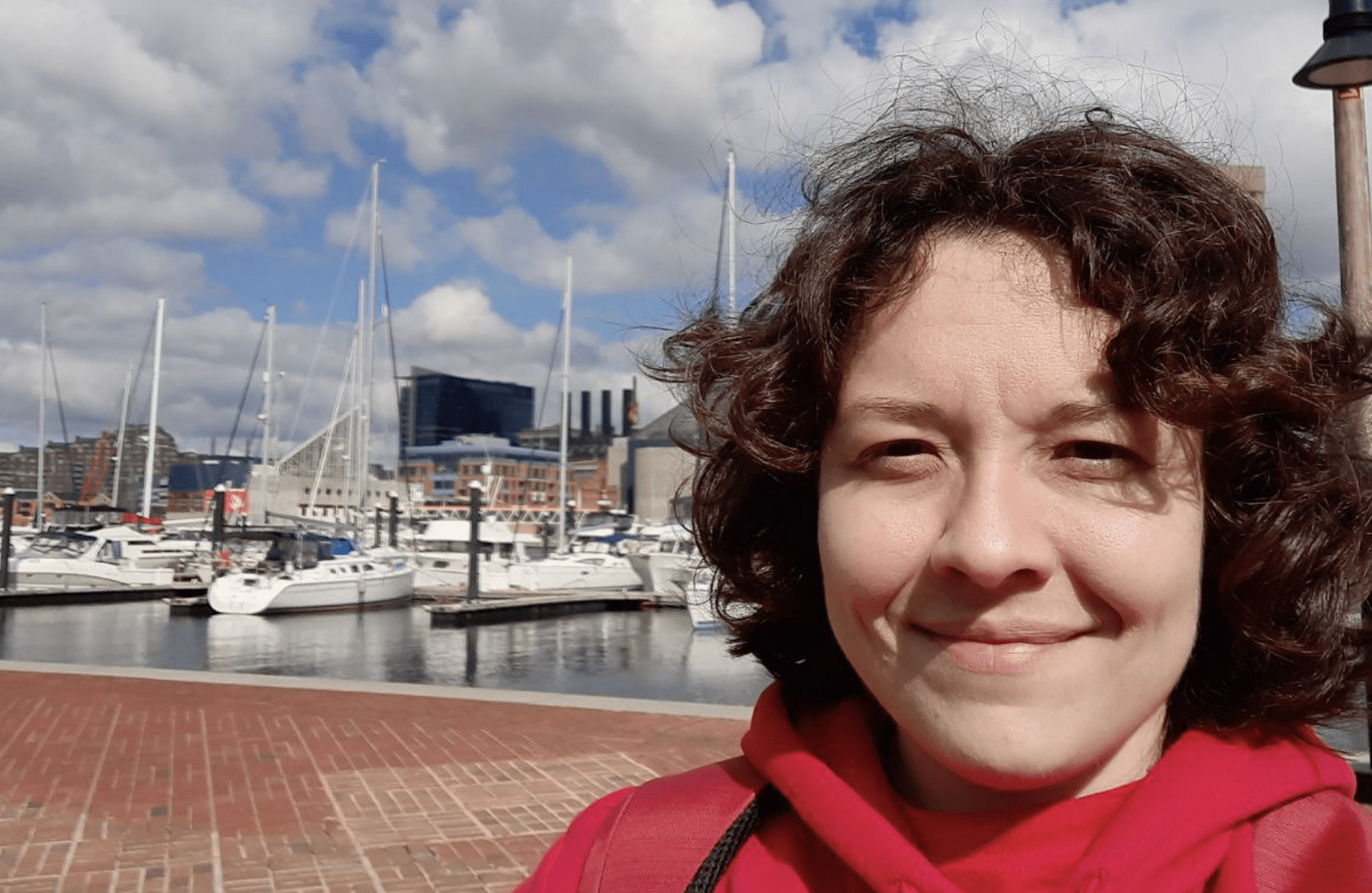
1. For those who may be unfamiliar with you and your work, can you share a little bit about yourself, your research interests at UMD, and the scope of your Fulbright?
I am an Associate Professor at Immanuel Kant Baltic Federal University in Kaliningrad, Russia. My background is quite diverse: I have a Specialist degree (something like a five-year BA) in Translation and Interpreting, an MA in Foreign Language Teaching, and a Ph.D. in Linguistics. My Fulbright program is called Faculty Development, so my goal here at UMD was to design a syllabus for a course back home.
In my case it was a course in neurolinguistics. It is a relatively new field for me as I normally teach Spanish and English at my institution, and my usual research domain is cognitive linguistics, particularly cognitive neology. I am interested in studying neologisms (primarily in the English language) from cognitive perspective, e.g. applying conceptual metaphor and conceptual blending theories as well as frame semantics. So, if you come across exciting new words in English, please don’t hesitate to write to me!
2. What inspired you to start this process of becoming a Fulbright participant? What was your process in approaching the application?
I decided that it was exactly the right time in my career to apply. At my home university they have opened two brand new MA programs: Neuroeducation and Neuropsychology. Both of the curricula included a course in neurolinguistics, so I volunteered to give it a try. I am happy that I did! It is a very “open-ended” research area which has a lot of unresolved questions, and that fact excites me tremendously.
The application process was relatively long, but clear and step-by-step. It is important to understand what exactly you want from your program and how you plan to carry it out. Once you have a precise vision of your trajectory, your application goes smoothly.
3. In 2022, the university released their new strategic plan, Fearlessly Forward. One of its core tenets is to take on the world's grand challenges. In what ways does your work contribute to supporting the common good?
I think one of the most valuable types of common good is mutual understanding, and I believe that the Fulbright program’s mission directly corresponds to that idea. I like to think of myself as a “social engineer” – the one who builds bridges between people and cultures. I am glad I had the chance to talk about my home region of Kaliningrad, which I love immensely. It is a curious place on this Earth, Russia’s “hidden gem” full of beauty and diversity. I am convinced that scientific exchange programs are one of the best kinds of diplomacy and a great way of establishing a close rapport.
4. What has been the most surprising thing you've found in your research and scholarship?
The Fulbright Program offers a huge support network. It is fascinating how quickly you start feeling comfortable in a foreign country. You meet so many amazing people, both at your host department and within your Fulbright community. You are never lonely and never bored. You find yourself in an extremely stimulating environment. Actually, I anticipated some friendliness and positive attitude from people, but the real experience exceeded my expectations.
5. How do you plan to carry forward what you learned and the relationships you formed while abroad?
I am going to implement the knowledge that I gained here into my teaching and into my future research. I got inspired to proceed with my regular research topics from a different perspective, so I intend to design and carry out a few exciting experiments in the near future. As for relationships, I can say that I was unbelievably lucky to have met so many great people at the Department of Linguistics and beyond, so I hope to maintain these connections and interact on a regular basis. My very special personal thanks go to Dr. Ellen Lau, she is ‘simply the best’ advisor you could ever wish for. Ellen, you are awesome!!
6. For others that are interested in becoming Fulbright participants, what advice do you have for them?
Just go for it. As simple as that. Don’t postpone your application for too long because it can change you in a number of positive ways and bring unforgettable experiences. It can feel scary, and at some points it will be, but just a little bit. Be confident, believe in yourself and in the people you are going to meet. Just picture the extent of your personal growth. Think of yourself as a plant (even if you are a couch potato) - the Fulbright program offers some water and useful nutrients for you. Surely you don’t want to miss this opportunity!
_____
Visit our Fulbright Scholars gallery to meet our fearless scholars engaging with the world. For general program information and application guidance, visit our "How to Fulbright at Maryland" section at the bottom of the page. Interested in applying for your own Fulbright, or want to learn more about the program? Email UMD’s Fulbright U.S. Scholars liaison Scholten@umd.edu.
